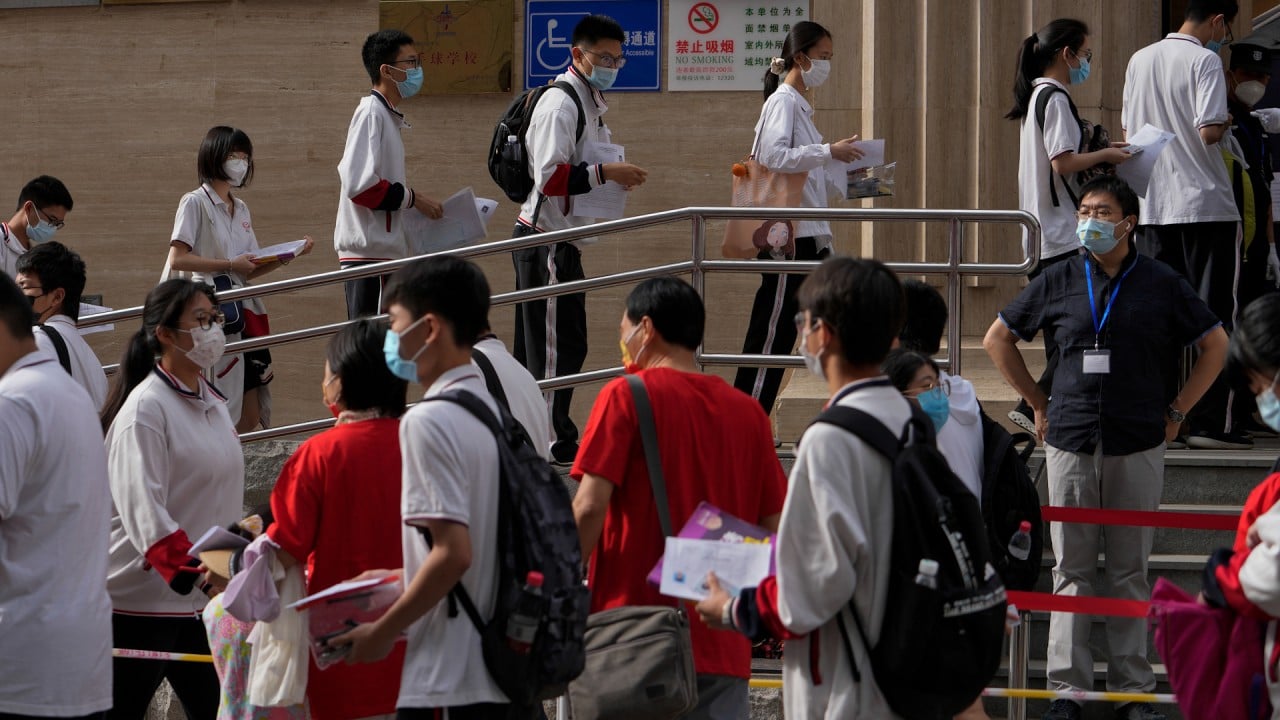But experts say the changes now being considered by the national legislature, the National People’s Congress, need to go much further and clear the record of minor violations for all adults.
“Many people have been affected by the existence of these records, which can prevent them from obtaining jobs, getting married, or even starting a business,” Luo Xiang, a professor at China University of Political Science and Law in Beijing, said in an interview with China News Weekly late last month.
The Chinese government is conducting the largest review of the Public Security Administration Punishment Law since 2012 and a second review will be submitted to NPC, and released for public comment this month.
Luo, one of China’s best-known criminal law academics, said there was a distinction between illegal and criminal acts.
Criminal acts fell under the Criminal Law and were processed by the court system.
Illegal acts encompassed a wide range of violations and were covered by the Public Security Administration Punishment Law. Offenders did not face a court but they could face fines and up to 15 days in detention, as well as a record on their personal record from the government.
An estimated 8 million people receive public security administration punishment in China every year, according to law professor Zhao Hong, also with China University of Political Science and Law.
But the punishment for legal infractions was not always proportionate to the offence, and could significantly affect a person’s future, experts noted.
A Beijing-based lawyer said these minor violations could be seen by some as flaws and could potentially affect school admission, job interviews with governmental authorities, government-controlled enterprises and the military. It could even affect applications to go abroad.
“[It] changes the life track of such a person and becomes a de facto punishment far exceeding what some minor non-compliances deserve,” the lawyer said, speaking on condition of anonymity.
The need for change was highlighted by the case of a 15-year-old boy who was struggling to transfer between schools because his record noted that he had violated traffic rules by not wearing a seat belt as a passenger.
The incident, which Zhao detailed in an opinion piece last year, was eventually resolved but not before highlighting a broader issue. Zhao said people across the country had written to him about similar cases and it was a topic that had not received enough attention from academics in either administrative or criminal law.
It was like a “hollow” between the two laws, Zhao said in the China News Weekly interview.
The first draft of the amendments to the Public Security Administration Punishment Law, released in September, proposed that authorities seal the records of underage offenders so their future employment prospects were not affected.
According to an added provision, Clause 136: “Records of persons under 18 years old who have violated public security administration shall be sealed and not be provided to any unit or individual, except for cases where the supervisory and judicial authorities, or relevant units need to conduct investigations or inquiries in accordance with national regulations. The unit conducting the lawful inquiry shall maintain the confidentiality of the sealed records.”
The Beijing lawyer said it was a good attempt to address the issue for minors but that the first draft did not mention adults on this matter. He suggested new articles on the matter be more specific, such as refraining from using broad language empowering “relevant units” to retrieve records for non-compliance.
Zhao agreed. Both professors said the impact of legal infractions was more widespread and severe in public security and traffic safety.
Luo said his initial encounter with the issue was through a message from an internet user in 2021. The young man was looking for a job but had been denied a clean criminal record certificate. The document said he was detained for gambling and fighting – but not convicted.
Despite having no criminal record, the footnote on his certificate significantly hindered his job prospects.
Luo said these infractions were sometimes treated as if they were a criminal record, affecting individuals’ perceived risk and likelihood of reoffending.
Experts also said there should be a way for people to correct errors or disputes in their records, citing cases where records were erroneously attributed to another person with the same name or where disputes were resolved without penalty but still recorded, causing unjust harm to individuals.
Luo said it was necessary to clarify the basis, procedures and remedies for recording legal infractions. He advocated for a time-limit for retaining and eventually erasing such records, ensuring that only reasonable records were kept and unreasonable ones were removed.
“The problem is not just about clearing one’s record, but about whether one’s entire life can be affected by a single mistake,” Zhao was quoted as saying.








